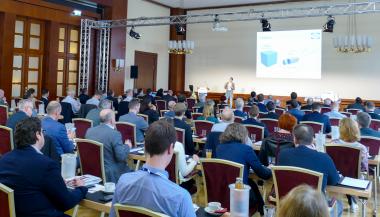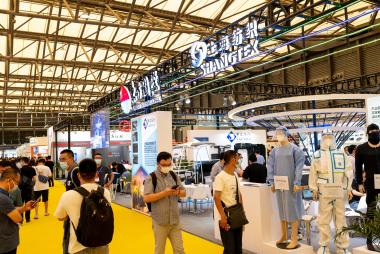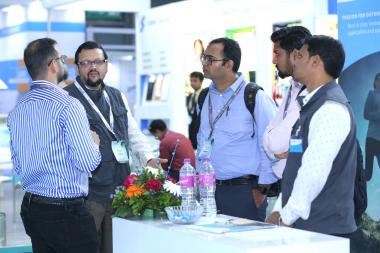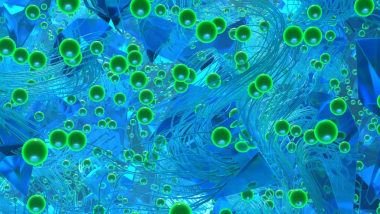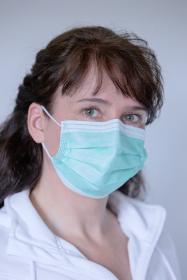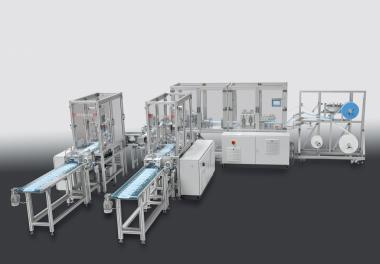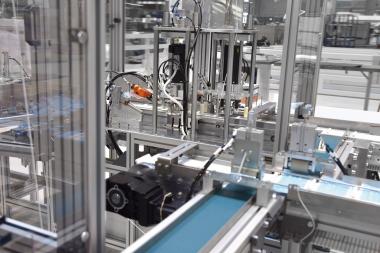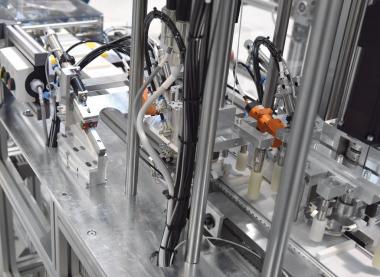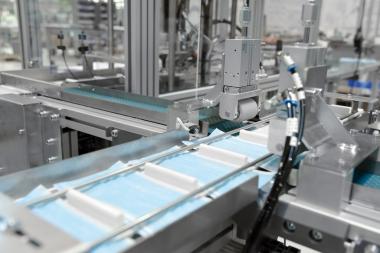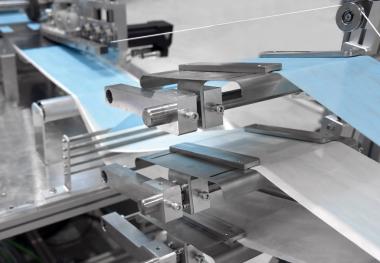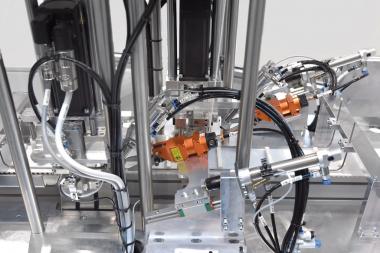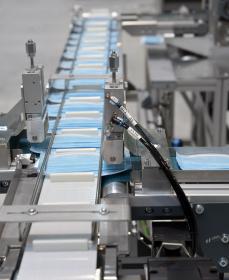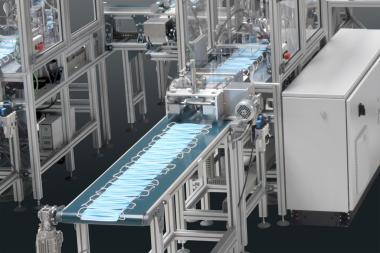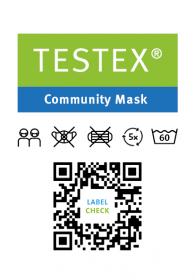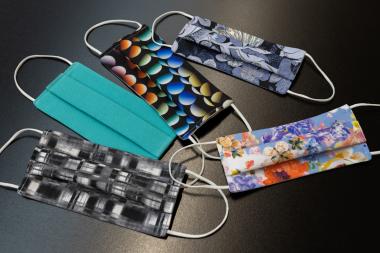STFI: Rückblick zum 16. Symposium TEXTILE FILTER
Das 16. Symposium TEXTILE FILTER des Sächsischen Textilforschungsinstituts e.V. (STFI) fand am 14. und 15. März 2023 im Hotel Chemnitzer Hof, Chemnitz, statt. Mussten vor drei Jahren wegen coronabedingter Reisebeschränkungen noch einige Vorträge über Videokonferenz gehalten werden, konnten in diesem Jahr knapp 100 Teilnehmer in Präsenz vor Ort sein. Im Rahmen des Symposiums wurden insgesamt 18 Vorträge und vier Pitch-Vorträge gehalten. Parallel wurde das Symposium von einer Fachausstellung begleitet, in der zehn Aussteller ihre Produkte und Services zeigten.
Der erste Vortragskomplex widmete sich den Themen Nachhaltigkeit, Kreislaufwirtschaft und Life Cycle Analysis (LCA). Herausgestellt wurde dabei, dass zum Vergleich der Prozesse, Materialien und Produkte die nationale und internationale Normung und Standardisierung sowie für die wirtschaftliche Durchführung die Automatisierung der LCA grundlegende Voraussetzungen sind. Außerdem wurde klargestellt, dass ein ehrlicher Vergleich der existierenden Vor- und Nachteile der biobasierten gegenüber den erdölbasierten Rohstoffen erforderlich ist.
Während der Coronakrise kam es auch in der Textilindustrie zu einem Zusammenbruch der Lieferketten. Die Lieferketten erholen sich, dafür wird die Wirtschaft gegenwärtig durch eine Energiekrise gebeutelt. Alternative Energiequellen wie Wasserstoff sind leider noch nicht ausgereift und stehen für eine umfassende Nutzung nicht bereit. Ansätze, um Energie einzusparen, sind Minimalauftragsverfahren in der Ausrüstung, die Wärmerückgewinnung, das Recycling oder die Einsparung von Verpackungen für den Transport.
Ein weiter Themenkomplex des Symposiums widmete sich der Normung und Standardisierung der Filterprüfungen. Zu erwähnen sind hier die Prüfung von Luftfiltern in Kombination mit Brandschutz für Züge, die Prüfung von Luftfiltern für Haushalt, öffentliche Räume und Industrieanlagen oder die Entwicklung von Labortestverfahren zur beschleunigten Alterungsprüfung von mobilen Entstaubungsanlagen.
Mehrere Vorträge hatten die Modellierung und Simulation von Prozessen der Vliesstoffherstellung (z. B. die virtuelle Produktion, Beeinflussung der Wolkigkeit von Extrusionsvliesstoffen oder die Verteilung von Spinnfasern und -filamenten), den Aufbau und die Charakteristik von Filtervliesstoffen (z. B. Flächenstruktur, Druckverlustkurve, Partikeltransport und -adsorption) sowie die Aerosolverteilung bzw. die Filtereffektivität in Abhängigkeit der Platzierung der Luftfilter im Raum zum Inhalt.
Auf dem Symposium wurden zudem auch verschiedene neue Materialien und Produkte vorgestellt. Dabei sind besonders hervorzuheben:
- Flüssigkeitsgefüllte Hohlfasern für die Abwasserreinigung
- Neue Spezialpapiere für Luftwärmeüberträger, bei dem ein kräuselfähiges Mikro-/Nanofasermu-
- ltifilamentgarn mit Einzelfaserdurchmessern von < 1,0 μm Fasern nach dem Island-in-the-Sea Schmelzspinnverfahren hergestellt werden
- 3D-Absorbervliesstoffe mit integrierter Gassensorik (PAKs) für die Schutzbekleidung von Einsatzkräften im Bereich Feuerwehr
- Getuftete Filterstrukturen kombiniert mit leitfähigen Interdigitalstrukturen für die Luftfiltration
- Kompakte Luftfilterelemente und deren Optimierung
- Einsatz von Ionisatoren für die Aerosolabscheidung im Filter
Abschließend stellte das STFI in eigener Sache geplante bzw. bereits realisierte Investitionen vor, die die technisch/technologische Basis und die Prüfkompetenz des Institutes erweitern. In Kurzvorträgen wurde die Errichtung einer Nassvliesanlage mit 600 mm Arbeitsbreite vorgestellt, die besonders für den Filterbereich und das Forschungsfeld Textilrecycling neue Entwicklungen ermöglichen wird. Für den Bereich Nähwirktechnik wurde eine neue Maliwatt- Maschine mit optimierter Arbeitsstelle investiert. Die Errichtung eines Prüfstandes für FFP2-Masken, der auch für die Prüfung von Filtern eingesetzt werden kann, erweitert die Prüfkompetenz des Hauses erheblich. Sein variabler Aufbau ermöglicht auch die Prüfung von neuentwickelten Vliesstoffen, deren Konstruktion durch Simulation optimiert wurde.
Sächsische Textilforschungsinstitut e.V.


